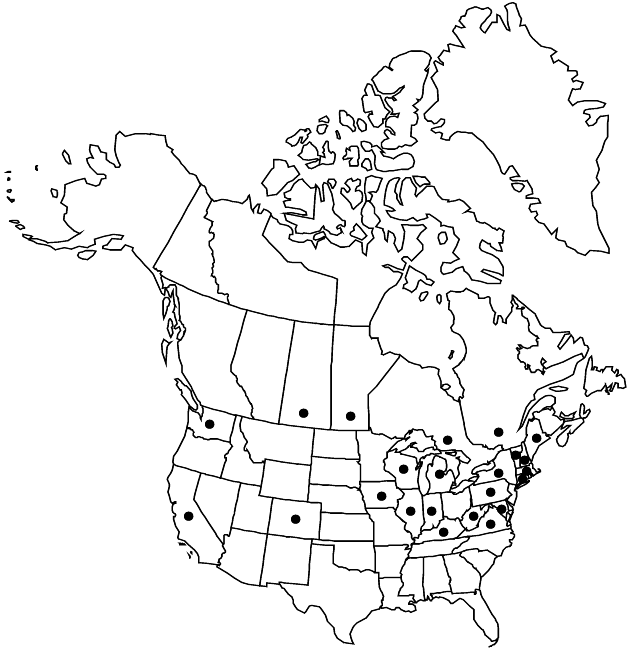Echinops sphaerocephalus
Sp. Pl. 2: 814. 1753.
Plants 100–200 cm. Stems simple to much branched, ± glandular, ± tomentose. Leaves: basal and proximal cauline leaves shortly winged-petiolate, distal cauline sessile, clasping; blades oblong-elliptic to narrowly obovate, margins ± subentire or 1–2-pinnately lobed, lobes lanceolate to triangular, margins revolute, spiny-dentate, spine-tipped, spines slender, 2–4 mm; abaxial faces densely gray- or white-tomentose, adaxial faces green, glandular-scabrous. Secondary heads 3–6 cm diam. Involucres 15–25 mm. Outer phyllaries ± glandular, inner phyllary apices attenuate, expanded, fringed. Corollas white to pale blue, 12–14 mm, tube ca. 5.5 mm, lobes ca. 7 mm. Cypselae 7–10 mm; pappi of ± connate, ciliate scales 1–1.5 mm. 2n = 30, 32.
Phenology: Flowering summer (Jun–Aug).
Habitat: Disturbed sites
Elevation: 0–1700 m
Distribution

Man., Ont., Que., Sask., Calif., Colo., Conn., Ill., Ind., Iowa, Ky., Maine, Md., Mass., Mich., N.H., N.Y., Pa., Vt., Va., Wash., W.Va., Wis., Eurasia.
Discussion
Echinops sphaerocephalus is sometimes cultivated, and sometimes it escapes from cultivation. The species has been reported from Saskatchewan and may be introduced there; that appears questionable.
Selected References
None.